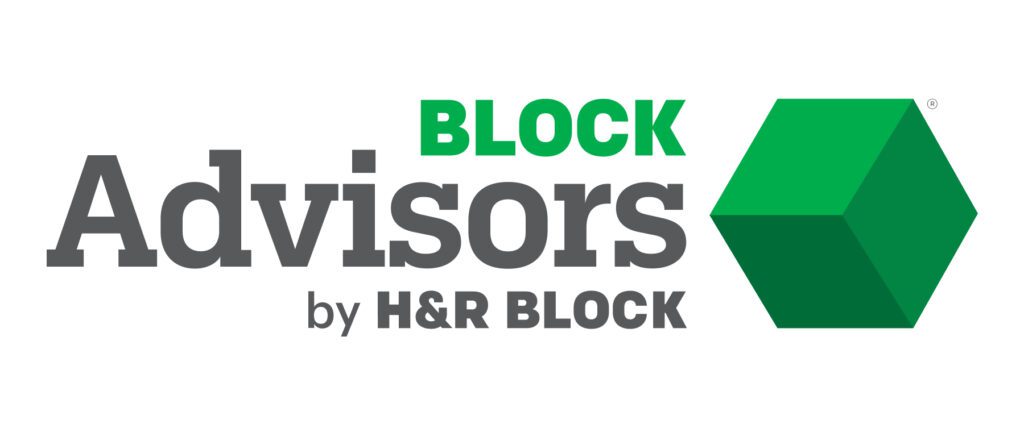Is In-home Daycare Tax Deductible? What Childcare Providers Should Know.
8 min read
February 05, 2024 • Block Advisors
Whether you already operate your own home daycare business or are considering starting one, it’s important to understand the tax implications of providing daycare services. You may be wondering, “Is daycare tax deductible?” On that front, there’s good news. There are many tax advantages to in-home daycares, as there are a lot of deductions you can take. Block Advisors is here to help childcare and daycare providers like you understand all available deductions. Keep reading for a guide to home daycare tax deductions!

Daycare tax deductions and time space percentage
Before diving into the specific in-home daycare expenses that are deductible, you must know about time space percentage (T/S%). This is the most important calculation for home daycare business owners. Many deductions we’ll cover can only be taken with the time space percentage applied. When you operate an in-home daycare, you will likely use the same areas for business and non-business activities. The Internal Revenue Service (IRS) understands this double-use, so they’ve created special rules for deducting the business use of your home.
That’s where the Time Space Percentage comes into play. The Time Space Percentage represents the portion of your home used for daycare business purposes. This percentage will help you determine how much of your shared business/personal expenses can be deducted as a daycare business expense. The percentage considers the amount of time and space your home is used for your daycare business purposes.
How to calculate time space percentage (T/S%)
- First, divide the square feet of your home regularly used for business by the total square feet of your home to get a percentage.
- Next, divide the hours of operation per year by the total number of hours in a year (8,760) for a percentage.
- Lastly, multiply your space percentage by your time percentage to get the combined total percentage.
In this calculation, regular use refers to the business use of an area that is continuous, ongoing, or recurring. For example, a bedroom used for naps daily qualifies as regular use. Hours of operation include the hours you have the kids in your care and all the time you spend running your daycare business outside designated hours. Don’t forget to account for time taken shopping for meals or supplies, cleaning toys, or advertising for your home daycare business.
In-home daycare example
Janine uses her basement to operate an in-home daycare for the families in her neighborhood. She wants to know what percent of her daycare’s direct and indirect expenses are tax deductible. Let’s look at the facts to understand:
- Find the percentage of space regularly used for business. Janine’s converted nursery occupies 1,500 square feet of her 3,000 square foot home.
In this example, 1,500 sq ft/3,000 sq ft x 100% = 50% of the home is regularly used for Janine’s in-home daycare.
- Find the percentage of yearly hours of operation out of the year. Janine runs her in-home daycare business only during the workweek, with two weeks off over the course of the year. Drop off and pickup are at 8 am and 5 pm – she watches children for 9 hours daily. However, preparing and cleaning up each day takes an additional hour, so she uses the space from 7:30 am – 5:30 pm daily for business activities. Janine and her family use the space as a playroom on evenings and weekends.
Here, Janine is caring for children 9 hours a day. However, she should also include the time she is preparing and cleaning up before the children arrive and after they leave. This increases the time she works to 10 hours a day. 10 hours per day x 5 days per week x 50 weeks per year = 2,500 hours per year. 2,500 hours per year worked/8,760 hours per year total = 28.54%
- Find the deduction rates for indirect and direct daycare expenses. Janine can deduct 28.54% of all direct expenses for the basement. However, indirect expenses can only be deducted at the business use percentage rate.
Janine may deduct 28.54% of direct expenses. Indirect expenses may be deducted at the adjusted rate to account for the square footage regularly used for business calculated in Step 1 (50%). That is, 28.54% x 50% = 14.27%
In summary, Janine may deduct her direct expenses, for example, new flooring for the entire house, at a rate of 28.54%. She may deduct her indirect expenses, for example, her electrical bill, at a rate of 14.27%. Using this method, she may understand how much of the expenses from her daycare are tax deductible.
Get tax expertise for your childcare business
File self-employment taxes your way – in-person or virtual
Full tax deductions: Child care expenses and in-home daycares
As mentioned above, there are some deductions that home daycare providers can take in full, while others depend on the time space percentage. These other expenses will result in a partial deduction. To claim a business deduction, the expense must be “ordinary and necessary” for the success of your business. Here is a list of small business deductions you can take. Keep in mind that for tax purposes, you can only deduct an expense if it is used only for your in-home daycare business:
- Advertising/marketing expenses: If you pay for things like website design, business cards, sponsored ads on social media, etc., you can write those expenses off on your taxes.
- Toys and supplies: You can deduct any toys, books, arts & crafts supplies, games, etc., and any supplies used solely for business purposes. This could include cleaning supplies, diapers & wipes, trash bags, detergents, cots and/or nap mats, and more.
- Meals and snacks: You can write off the cost of any food or drinks you provide and the plates, cups, or serving utensils. You can use the IRS Standard Meal Allowance or the actual cost method for this deduction.
- The IRS Standard Meal Allowance method lets you deduct breakfast, lunch, dinner, and snacks for each child in your care based on a set amount. You must keep a record that includes each child’s name, the meal or snack you served, and the time/date you served it.
- The actual cost method involves keeping track of every receipt for groceries and adding them up at the end of the year to claim the actual cost of the groceries.
- Office supplies: Items like paper, file folders, ledgers, envelopes, and notebooks can be deducted if they are used for bookkeeping purposes.
- Training and continuing education: Online courses, conferences, and other training may be deducted if they relate to your in-home daycare.
- Bank fees
- Playground equipment
- Legal and professional expenses
- Vehicle expenses: Costs like gas and expenses are tax deductible. You may also be able to take depreciation for a vehicle you use for your daycare business. There are many ways to depreciate a vehicle, but one popular way is to take a Section 179 deduction. To take the full Section 179 tax deduction, you must only use the vehicle for your daycare business. If the vehicle is used for both in-home daycare and personal purposes, we recommend keeping a mileage log to record your business use. A Block Advisors expert can help you understand if you qualify for a partial Section 179 deduction.
- Insurance: If you have liability insurance for your in-home daycare, you can deduct the full cost.
- Gifts: Celebrating a birthday or other special occasion for a kiddo in your care? You can deduct up to $25 per individual per year for gifts given to children in your in-home daycare.
Get every available business credit and deduction when you file online
Get started on your childcare business tax return today.
Partial tax deductions: Expenses for your home AND daycare
As you can see, many of the child care expenses and other types of expenses related to your in-home daycare are tax-deductible and may lower your tax bill. But what about things that you use for business and personal use? Use IRS Form 8829 and your time space percentage to understand what you can and cannot claim.
Generally, utilities, internet, water, trash, home appliances, improvements and repairs, insurance, taxes, and mortgage payments are deductible for your home daycare. However, these things are likely for your personal/home use and business purposes. Therefore, you can only deduct a portion of the costs. But even so, taking these partial deductions can add up! Don’t miss deducting these partial deductions to lower your bill this tax year.
More help with self-employed tax deductions and calculations
Running an in-home daycare is no small feat. Adding tax preparation and filing requirements to your to-do list can be overwhelming. But keeping track of your tax requirements and ensuring you get every available deduction and tax credit shouldn’t be a headache. Block Advisors is here to help!
Get back to doing what you love and let our experts lighten your load, in person or virtually, year-round – as always – backed up by Block Advisors guarantees. Our taxes, bookkeeping, payroll, incorporation, and beneficial owner reporting services are designed with small business owners like you in mind.
Speak with a certified small business tax professional today!




